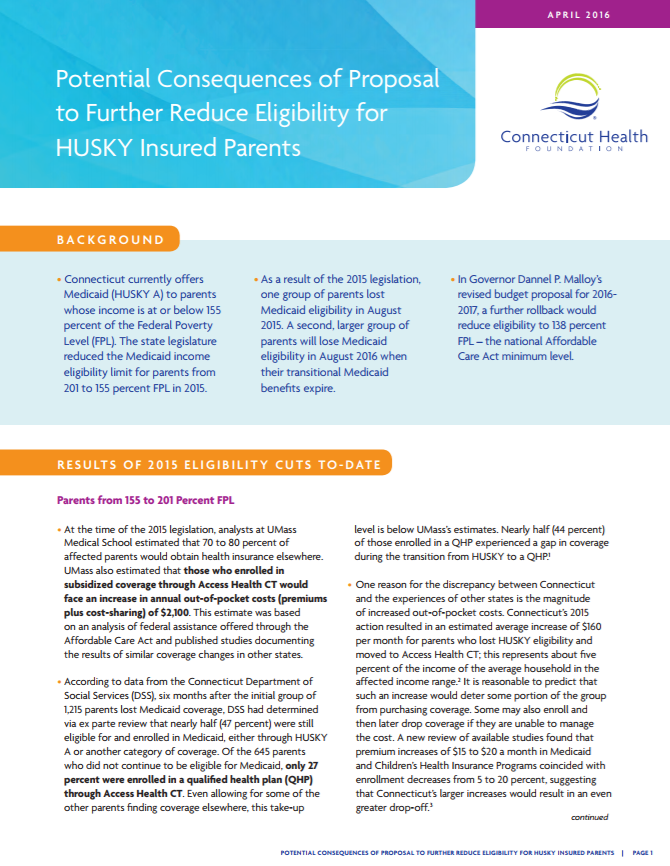Background
- Connecticut currently offers Medicaid (HUSKY A) to parents whose income is at or below 155 percent of the Federal Poverty Level (FPL). The state legislature reduced the Medicaid income eligibility limit for parents from 201 to 155 percent FPL in 2015.
- As a result of the 2015 legislation, one group of parents lost Medicaid eligibility in August 2015. A second, larger group of parents will lose Medicaid eligibility in August 2016 when their transitional Medicaid benefits expire.
- In Governor Dannel P. Malloy’s revised budget proposal for 2016-2017, a further rollback would reduce eligibility to 138 percent FPL – the national Affordable Care Act minimum level.
Key Findings
- 2015: Six months after the initial group of 1,215 parents lost Medicaid coverage, the CT Department of Social Services had determined that nearly half (47 percent) were still eligible for and enrolled in Medicaid, either through HUSKY A or another category of coverage. Of the 645 parents who did not continue to be eligible for Medicaid, only 27 percent were enrolled in a qualified health plan (QHP) through Access Health CT. Nearly half (44 percent) of those enrolled in a QHP experienced a gap in coverage during the transition from HUSKY to a QHP.
- 2016: There are approximately 8,700 parents enrolled in HUSKY with incomes between 138 and 155 percent FPL ($27,800 to $31,200 per year for a family of three) who would be affected by further reducing eligibility. UMass estimates that the average increase in out-of-pocket costs for this group (premiums plus cost sharing) with subsidies would be about $1,200 annually, or about $100 per month if they purchase a QHP through Access Health CT.
- 2016: The experiences of other states point to an estimate that 30 percent of HUSKY parents would become uninsured. However, only 61 percent of the 1,215 HUSKY parents affected by the 2015 eligibility reductions were known to be enrolled in health insurance following the change, including those who retained Medicaid eligibility. This suggests that affected families in Connecticut have not been as successful as those in other states in maintaining health coverage. If the same outcome were to hold for the 8,700 parents between 138 and 155 percent of FPL, about 3,400 might end up uninsured.
